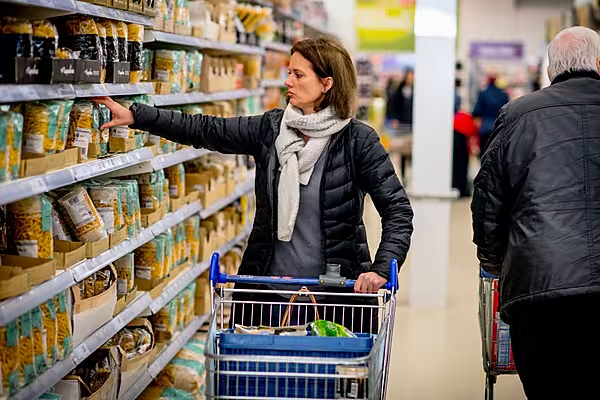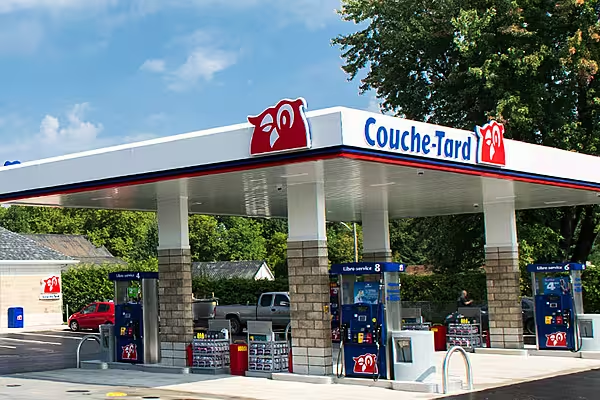The news that Sainsbury’s and Asda, the UK’s number two and number three supermarkets respectively, could be on the verge of a historic merger, has sent shockwaves through the industry.
This morning (30 April), Sainsbury's issued a statement saying that it has 'agreed terms in relation to a proposed combination of Sainsbury's and Asda Group', to create a 'dynamic new player in UK retail'.
Here’s what some of the UK’s leading retail analysts are saying about the deal.
Philip Benton, Euromonitor International
"The merger of Sainsbury’s and Asda would give the companies a combined 24% value share of the grocery offline market, dwarfing that of Tesco who currently lead with 22%. In terms of stores the deal would make strategic sense, with Asda traditionally having a strong presence in the North of England with Sainsbury’s dominating the South-East.
"It is likely that the Competitions Market Authority would force the combined company to sell off some stores to ensure the group doesn’t have a monopoly in certain town/cities – similar to what occurred when Morrisons bought Safeway in 2004."
Barclays European Food Retail Equity Research
"Asda’s strength is arguably in its competitively-priced branded groceries – but it does not have an especially strong reputation for its private label. The reverse is true of Sainsbury – it is generally seen as offering a strong private label range but is not especially competitive on branded groceries. A well-executed merger of the two companies could therefore enable both to address their respective weaknesses. [...] Although both companies operate stores across the UK, Asda is relatively stronger in the north and Sainsbury in the south – so again, a merger could be complementary in this respect. It might also reduce the extent of competition issues.
"We would expect there to be significant purchasing benefits from any merger. Compared with Tesco and Booker, it seems reasonable to expect proportionately higher savings given we would expect there to be greater commonality in the goods that they are purchasing (though still far from a perfect overlap). These savings could either boost profitability, improve pricing or improve service – or a combination of all three."
Darren Shirley, Shore Capital
"The decision by Sainsbury and Asda to merge is bold. With the clearance of Tesco-Booker, the regulatory game changed and so we are not wholly surprised to see the CMA tested. We struggle with an authorised duopoly from the perspective of consumer benefit in the long-run, even with the presence of Aldi and Lidl at a c13% share in the UK. However, the nature of the CMA makes the outcome difficult to predict when it probably should not be.
"We are more nervous than not about the recent track record of both businesses, the lack of delivery of Argos to date by Sainsbury and the potential fog from acquisition accounting for shareholder benefit. We also wonder how independent shareholders will consider WalMart's position on the register?"
David Beadle, Moody's
“Combining Asda and Sainsbury’s will unseat Tesco as the UK’s leading supermarket, with the enlarged group limiting profit improvement for the country’s other grocers in the years ahead."
Neil Saunders, GlobalData Retail
“From a scale perspective, a deal makes sense. The combined entity would have a 22% share of the UK's food and grocery market. This is well above the share of the current leader, Tesco, which has 17.7%. Such a dominant position in grocery - along with the combined non-food business which includes Sainsbury's Argos division, would create many opportunities for cost savings and buying efficiencies.
“On the scale front, any deal would require approval from competition authorities. Given the highly consolidated market, it is likely that scrutiny would be high and an investigation prolonged. Furthermore, we believe that even if a deal was ultimately permitted, it may be subject to remedies such as store disposals and other measures which would be disruptive.
“The differences between the two groups make a true merger almost impossible. Although it could be combined corporately, we believe it would be folly for the new entity to completely merge operations and brands. This limits the scope for savings and efficiencies and, if anything, adds complexity.”
Russ Mould, AJ Bell
“Assuming the Competition and Markets Authority lets the deal pass relatively unhindered – and the manner in which it waived through the Tesco-Booker deal suggests it might – then the next decision that will follow the proposed Sainsbury-Asda merger is Morrisons’ competitive response.
“The defensive merger between two rivals may well force the Bradford firm to seek out a merger or a deal of some kind with the Co-Op. Although this will not make a huge dent in the market share gap between Morrisons and Tesco and the proposed Sainsbury-Asda entity, such a move would at least take Morrisons’ market share back above the combined reach of the discounters Aldi and Lidl, who continue to act as a disruptive force in the UK grocery market.”
Richard Lim, Retail Economics
“The merger of Sainsbury's and Asda would be a game changer in the UK grocery market of epic proportions. The combined market share of nearly 30% would position it as the UK's largest supermarket chain.
"The potential tie-up would see the combined business take Tesco head-on. The newly formed retailer would be able to drive improved efficiency through cost-saving synergies, while the integration of Argos across a significantly larger store estate could 'supercharge' the non-food business. Of course, the deal would have to make sense both sides of the pond while there is likely to be doubt over its legitimacy in the eyes of the Competition and Markets Authority."
Catherine Shuttleworth, Savvy
“We were always expecting something to happen to consolidate the grocery market - the middle ground has been squeezed the most by the inevitable march and expandability of the discounters, a reinvigorated Tesco with Booker under its wing is less arrogant and more relevant than with support from suppliers and conversion with shoppers - so the potential of Sainsbury's and Asda joining forces creates a new dimension for the UK grocery market.
“Whilst it’s unclear what form this merger may ultimately take it was always necessary to consolidate to survive. Could this be the catalyst for Amazon to make a real move?”
Bruno Monteyne, Bernstein Research
“Why such a deal? Scale is the biggest driver of buying costs. The Tesco-Booker deal made SBRY & Asda fall further behind on scale. Together their combined market share would slightly surpass Tesco's market share. This would drive big buying synergies. Ecommerce will make scale even more important as the shape of food retail changes and the thought of Amazon is always back of mind
“Asda has been struggling in the UK to deal with both the threat of discounters and the growth of ecommerce, particularly in non-food. It is also weak in private label, the biggest battlefield against discounters. Both areas that Sainsbury's excels in. SBRY has done relatively well over last 5 years but its weakness is pricing. Recently it has struggled to remain price competitive, as Tesco has regained its old pricing position. Asda has the strongest supermarket prices, possibly benefiting from Walmart‘s global buying power.”
Andy Brian, Gordons LLP
“This potential deal has come as a huge shock even for those in the industry and it seems people are still guessing what might happen if Asda and Sainsbury’s were to join forces.
“One thing is clear; despite what is being said officially, stores would have to close. That’s not necessarily a bad thing for the brands, although it would of course be a bad thing for those store employees. Moving forwards, one theory is that this deal could allow Sainsbury’s the freedom to compete hard against M&S Food and Waitrose at the top end of the grocery market and leave Asda to compete further on price against the other mid-market players, as well as Aldi and Lidl.
“It’s not yet clear whether that’s the real intention but any deal would undoubtedly shake up the UK supermarket sector, possibly like never before.”
James Butcher, Solutions for Retail Brands (S4RB)
“It is hard to see how the Sainsbury’s brand and operations will align with the everyday low price (EDLP) model of Walmart International. These proposed changes could confuse customers and be damaging to both the Asda and Sainsbury’s brands. While I do have a lot of respect for Mike Coupe, and it is still early days, this move is considerably more questionable than its acquisition of Argos two years ago.
“As we saw with Tesco’s takeover of Booker and Londis, approval for these major decisions can take up to six months. It’s crucial that both Sainsbury’s and Asda avoid a hiatus of activity during this decision period and risk losing further ground to the continued progress of Aldi and Lidl.”
© 2018 European Supermarket Magazine – your source for the latest retail news. Article by Stephen Wynne-Jones. Click subscribe to sign up to ESM: The European Supermarket Magazine.














